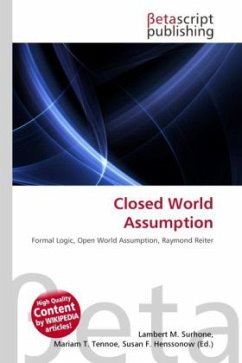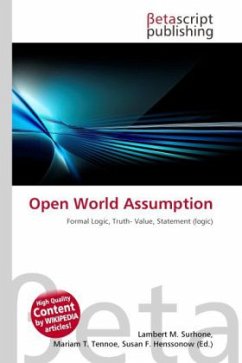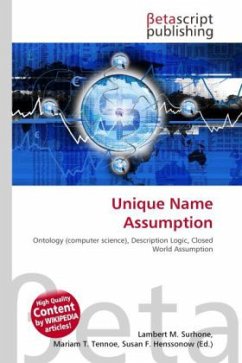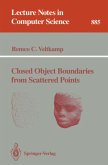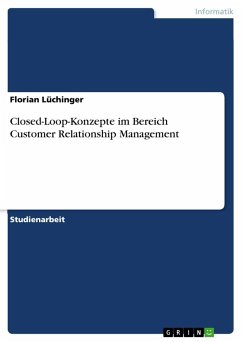High Quality Content by WIKIPEDIA articles! The closed world assumption is the presumption that what is not currently known to be true, is false. The same name also refers to a logical formalization of this assumption by Raymond Reiter. The opposite of the closed world assumption is the open world assumption, stating that lack of knowledge does not imply falsity. Negation as failure is related to the closed world assumption, as it amounts to believing false every predicate that cannot be proved to be true. In the knowledge management arena, the closed world assumption is used in at least two situations: 1) when the knowledge base is known to be complete (e.g., a corporate database containing records for every employee), and 2) when the knowledge base is known to be incomplete but a "best" definite answer must be derived from incomplete information. For example, if a database contains the following table reporting editors who have worked on a given article, a query on the people not having edited the article on Formal Logic is usually expected to return Sarah Johnson .
Bitte wählen Sie Ihr Anliegen aus.
Rechnungen
Retourenschein anfordern
Bestellstatus
Storno

